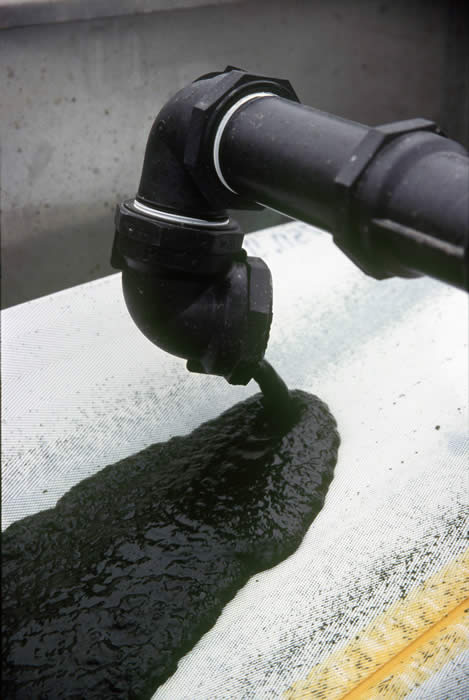
We’ve frequently reported on the progress of NZ company Carbonscape (follow the Carbonscape tag) which makes charcoal using a microwave process. They’ve just announced what they describe as a world first in the production of the highly porous charcoal known as Activated Carbon (AC).
“Using its patented continuous-flow microwave technology, Carbonscape™ has produced high-grade and highly-valuable AC in a single processing step using waste pine sawdust.”
What makes it special is the fact that the normal method of production involves many stages of processing and uses relatively exotic materials to open up the tiny pores between carbon atoms. Director and CEO Tim Langley says:
“We have replaced a slow and complex process using exotic materials with a fast, single process using pine sawdust and created a 60% improvement in quality. We have applied for patents. The potential world market for this technology is vast. Each year demand is rising by about 5%. It’s a whole new world.”
Activated Carbon has many uses, but of particular interest in relation to climate change is its potential to massively reduce the emissions from large, single sources of carbon dioxide, such as power stations. AC placed in flue gases can absorb carbon dioxide before it is released into the atmosphere.
Professor Chris Turney is a director of Carbonscape. He says of the announcement:
“This is just the start. We’re now exploring the potential of other waste types for producing Activated Carbon to identify whether they are best for absorbing carbon dioxide or for other applications. It’s an incredibly exciting time.”
Incidentally, Chris Turney, author of Ice, Mud and Blood (reviewed here), and co-author of a recent paper on temperatures and sea level in the last inter-glacial reported here on Hot Topic, is going to be working with fellow scientist Dr Chris Fogwill on the Atlantic-facing part of West Antarctic Ice Sheet during January 2011 investigating how West Antarctica has responded to temperature changes in the recent geological past. He has an interesting account on his blog. We’ll try to keep in touch with any findings.
On the same day as the Carbonscape news another New Zealand company Aquaflow, whose development we have also frequently reported on Hot Topic (follow the Aquaflow tag), made an announcement of a significant advance in their algal technology. They have developed twenty high value chemicals from wild algae. Director Nick Gerritson says the breakthrough shows once again the equivalence of Aquaflow green crude to fossil crude and its diversity of products. He says their technology can now be demonstrated to not only create clean, renewable fuels and to remediate wastewater but also produce high value chemicals.
Both algal and charcoal technologies are the subject of considerable debate and their future is not clear. But it is obviously important that any technologies which could assist the transition away from fossil fuels are thoroughly explored. We may take pleasure in the thought that these two small New Zealand companies are ploughing on with their ventures and wish them well in their respective breakthroughs.
Like this:
Like Loading...
 Positive news this week from the Nelson-based algae company Aquaflow whose fortunes we have followed on Hot Topic over the past three years. I last reported on them in August 2011, when they had signed an agreement for joint testing and evaluation with Texas-based CRI Catalyst Company (CRI). Now they have announced a full technology cooperation agreement with that company which they believe leaves them poised to make refining next generation biofuels a commercial reality in New Zealand and in overseas projects within the two to three years it takes to build a refinery.
Positive news this week from the Nelson-based algae company Aquaflow whose fortunes we have followed on Hot Topic over the past three years. I last reported on them in August 2011, when they had signed an agreement for joint testing and evaluation with Texas-based CRI Catalyst Company (CRI). Now they have announced a full technology cooperation agreement with that company which they believe leaves them poised to make refining next generation biofuels a commercial reality in New Zealand and in overseas projects within the two to three years it takes to build a refinery.

 Time for an update on Aquaflow, the Blenheim algae company we have frequently covered on Hot Topic this year. Things continue to look promising for it in the world outside NZ. Its discussions with overseas companies have resulted in a contract with Greenleaf Environmental of Chengdu City, Sichuan Province in China to investigate suitable sites in China for Aquaflow’s technology.
Time for an update on Aquaflow, the Blenheim algae company we have frequently covered on Hot Topic this year. Things continue to look promising for it in the world outside NZ. Its discussions with overseas companies have resulted in a contract with Greenleaf Environmental of Chengdu City, Sichuan Province in China to investigate suitable sites in China for Aquaflow’s technology.